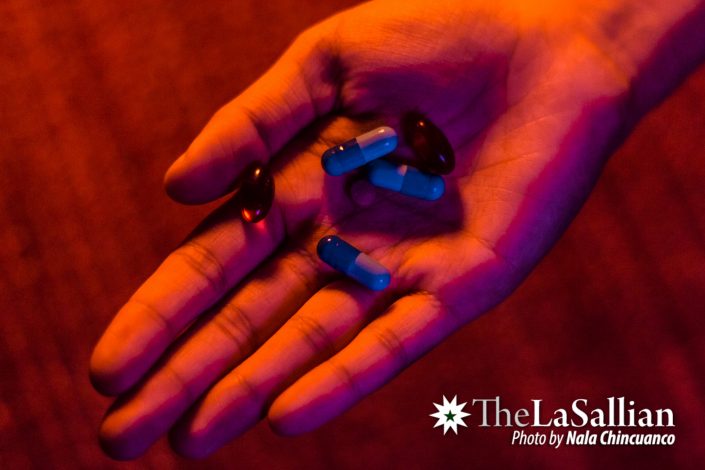The country’s “war on drugs” can be traced back to 2016 when President Rodrigo Duterte assumed his position as President of the Republic of the Philippines. Three years have passed, but the Duterte administration is nowhere near its specified goal of eradicating drug use in the country.
Drug rehabilitation efforts have since progressed extensively with the establishment of several rehabilitation and treatment centers in key locations in the country. As per the latest report from the Department of Health, there are currently 53 licensed Drug Abuse Treatment and Rehabilitation Centers (DATRCs), presently located in several regions across the country, with 11 more that are expected to be established before the end of 2019.
Clarifying misconceptions
Several falsities associated with substance abuse have manifested as a result of the negative stigma associated with drugs and the extreme dissent in addressing the use of recreational drugs, or chemical substances taken for pleasure or leisure.
Dr. Eligio Maghirang, an assistant professor from the Biology Department and an emergency medicine specialist, clarifies these misconceptions. “There are [three main classifications]—addict, dependent, and tolerant. Unfortunately, society tends to confuse the definitions of [the three categories],” he explains while also emphasizing the importance of proper diagnosis in treating a patient.
Probing into the three primary categories that detail how substances affect a person’s body and brain, Maghirang delves into the category of tolerance, stating that identifying medical indication—known as a physician’s interpretation concerning a patient’s physical or psychological condition—helps in diagnosing a patient to determine which treatment is advisable. This is, however, only half of the approach as several physiological and psychological factors also come into play.

He draws parallels between drug tolerance and alcohol ingestion, explaining that a person is able to develop their tolerance to alcoholic beverages once they routinely ingest the substance, depending on their alcoholic intake. “In layman’s terms, the body becomes used to anything that [becomes] a part of your system, that runs in your blood,” Maghirang simplifies.
He explains that an individual may become dose-dependent on a substance when the effects of a drug changes once its dosage is altered. Maghirang also reveals that two categories may also overlap, specifying the possibility of an individual becoming simultaneously tolerant and dose-dependent.
He also cites a non-opioid-based medicine such as paracetamol, intended to treat fever and reduce pain, as a prominent example of a drug that individuals can become tolerant or dose-dependent to due to the nature of its use. Non-opioid-based medicine refers to a classification of drugs that does not contain heroin, an illegal substance.
Lastly, the final category—addiction—is more often than not used as an all-inclusive term that has a negative connotation in the use of recreational drugs.
“Addiction is taking a certain medication in whatever form without [any] indication [or need] for it. Even though you don’t have a medical [prescription], you still opt to take the medicine because you’re already addicted to it,” he stresses in Filipino.
However, in that spectrum of definition, Maghirang foregrounds the likelihood of all three categories amalgamating with each other, ultimately forming a complex and comprehensive combination of classifications.
Rehabilitation efforts in the country
Catalino S. Cuy, incumbent chairman of the Dangerous Drugs Board (DDB), discloses the key initiatives spearheaded by the organization, being the country’s leading agency on drug abuse prevention and control. One initiative is the Drug Abuse Prevention and Control Week held annually during the third week of November, in line with the Philippine government’s current endeavors to facilitate rehabilitation efforts for illegal substance users.
“The Philippine Anti-Illegal Drugs Strategy (PADS) guides the [countrywide] approach in addressing the problem on illegal drugs. PADS is a comprehensive priority program of the Duterte administration that prescribes how [different government sectors] should work together in cutting the supply and demand for illegal drugs,” shares Cuy.
In lieu of this, he emphasizes the importance of working collaboratively with different agencies and organizations in implementing a demand-reduction strategy through a series of programs aimed at raising awareness on the dangers of using illegal drugs, which would essentially cut demand for these substances and in effect, deter their supply.
Regarding the current rehabilitation process, Cuy divulges that the process for in-patients in rehabilitation facilities usually lasts for six to 12 months depending on the case. However, patients who are diagnosed with mild substance disorders—which is determined using a guideline created by the World Health Organization—are provided with community-based treatment and rehabilitation instead. Unlike the standard rehabilitation process, there is no fixed treatment duration for those patients who undergo the community-based approach as it is entirely dependent on the case management of each patient.
Cuy also discloses one of the key responsibilities of the DDB, which is the data-driven approach of quantifying the trend of drug abuse throughout the years by gathering data via reports from enforcement agencies and information on admitted patients from accredited DATRCs.
Cuy conveys that they hope to conduct comprehensive surveys next year in order to formulate a more extensive picture of the nature and extent of drug abuse in the country.
